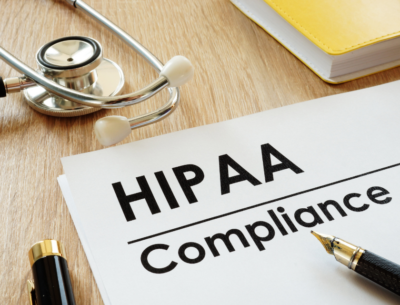If you run a business that deals with sensitive patient information, then you need to be HIPAA compliant. The Health Insurance Portability and Accountability Act (HIPAA) was enacted in 1996 to protect the privacy of patients’ health information. If you are not compliant, you could face serious penalties, including fines and imprisonment. As a business owner, it’s paramount you understand the importance of HIPAA and how to become compliant with the law.
Why is HIPAA Important?
HIPAA is important because it ensures that patients’ health information is kept private and protected. Protected health information (PHI) includes data such as test results, medical records, and insurance information. When personal information is released without the patient’s consent, it can be used to exploit or disadvantage them. For example, if an insurance company finds out that a patient has a pre-existing condition, they could deny them coverage. Additionally, if an employer discovers that an employee has a mental health condition, the employers could display biased and/or discriminatory actions against them. In both cases, HIPAA is important for protecting patients from exploitation and discrimination. It does so by holding businesses accountable to policy and procedure requirements which ensures the privacy of patient information. 
To become compliant with HIPAA, you need to have policies and procedures in place that protect patients’ health information. These policies should include things like how you will collect, use, and store patient information. You should also have a process for handling patients’ requests to access their information. Lastly, you need to train your employees on these policies and procedures.
If you are not compliant with HIPAA, you could face serious penalties. These penalties include fines of up to $1,500,000 USD and up to five years in prison for serious violations. To avoid these penalties (and protect your patient’s personal information) it’s important to make sure that you are compliant with the law.
Why is HIPAA Important to Patients?
HIPAA compliance is important to patients because it allows them to feel more secure in your care. Since trust is the foundation of every business entity, they are more likely to select you as their primary healthcare provider.

HIPAA compliance is immensely important to business-patient relationships now more than ever. In recent years, the healthcare sector has seen an alarming increase in data breaches which has resulted in significant financial and reputational damages for businesses. Understandably so, if a patient’s personal information is stolen from a business during a breach and is used for identity theft, transferring funds, or worse- patients will no longer have trust in the company and are likely to leave. I’d leave too!
To avoid this and to protect your business-patient relationships, businesses should demonstrate that they have a solid data security architecture in place that can sufficiently preserve patient data. By providing evidence of sufficient security protocols, you can earn a HIPAA compliance status. With a HIPAA compliance status, the impact of a data breach can be less harmful and further financial losses and reputational can be avoided. As a result, patients will have preserved trust in your business and continue using your service.
How HIPAA Compliance Helps Businesses
In addition to preventing further financial and reputational damages in the event of a data breach, having HIPAA compliance provides several other benefits to your business.
1. Compliance Brings Increased Profitability
The greatest advantage of being HIPAA-compliant is that your business won’t face punitive action if a breach occurs. As a result, the danger of business and reputational damage is considerably lower than it would be if you business were non-compliant.
It is critical to recognize that paying for non-compliance fees can deplete resources that may otherwise be utilized to grow your healthcare business. As a result, it’s a good idea to put in place adequate resources on the front end to ensure that compliance mechanisms are in place.
2. Proactive Data Security is Aided by Compliance
Your healthcare organization can only scale if it is able to safeguard the ever-growing data it gathers from patients. Implementing a proactive data risk management strategy will help you safeguard patient information against breaches. As a result, you’ll be able to grow and collect more data from patients, knowing full well that you have the capacity to keep it safe.
A good strategy for data security management involves a patient data security plan that is able to adapt to changing cybersecurity risks as the business expands. Every day, new technologies are being introduced in the healthcare sector and it can be difficult to determine which technologies meet the requirements for protecting client information. However, using HIPAA compliant solutions, such as TitanFile, establishes the foundation for protecting patient information privacy while embracing digital adoption and security in the workplace.
3. Compliance Assists with the Application of Data Handling Practices
HIPAA is a privacy law that requires the protection of electronic protected health information (ePHI) and protected health information (PHI), which often overlap. The law states that healthcare providers must understand how their patient data flows through their data system. This includes information such as where the information is stored and who has access to it on its way there. All of this is done to ensure that patients’ personal information remains secure at all times.
The Act also regulates records management for government departments, and state and city authorities, including the London Fire Brigade. Some of the requirements for compliance include having a designated privacy and security officer in your business, knowing information security protocols and policies, and conducting regular training to raise employee understanding. Fulfilling these, among other criteria, will get your company on track to becoming HIPAA-compliant.
Final Thoughts
The importance of HIPAA in the healthcare industry cannot be overstated. Compliance with this legislation plays a significant role in the development and success of your organization. Make sure your organization is HIPAA compliant, today!
If you found this article helpful, please make sure to share it with your network using the social channels below.
